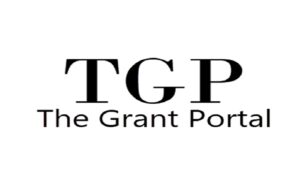
Behavioral health practitioners who specialize in addiction treatment face unique challenges. Keeping track of their patient’s records and a consistent treatment approach is essential, yet it can also be a daunting task. Electronic Health Record (EHR) solutions can help, but only if they provide features tailored for addiction treatment professionals. Here, we discuss some of the critical advantages that a Behavioral Health EHR can offer to addiction professionals.
Streamlined and Integrated Documentation
An essential aspect of addiction treatment EHR software is its ability to help professionals access, record, and track vital patient information quickly and seamlessly. This ensures they have an organized and accurate picture of their patients’ conditions, progress, and setbacks right at their fingertips. It can also help in detecting trends and identifying areas that need intervention, ultimately leading to better treatment outcomes.
Enhanced Billing and Payments Processing
Efficient billing processes are crucial for the smooth functioning of any behavioral health organization. Incorporating elements of strong behavioral health billing software within the EHR can save clinicians and administrators time and effort. This, in turn, can help providers focus on their core mission of delivering quality care to their patients while also improving overall financial health.
Comprehensive Treatment Planning
Addiction professionals base their treatment plans on multiple factors, such as client assessment and evidence-based practices. As such, a Behavioral Health EHR should support these treatment plans by allowing them to be easily tailored to each individual’s needs.
In this context, it is important to look for key things that should be included in your behavioral health EHR, like customizable care plans, tools for tracking progress and outcome measures, and the ability to generate printed or electronic reports that can be shared with relevant parties, such as case managers or interdisciplinary teams.
Improved Interoperability
Behavioral health professionals often work as part of a multidisciplinary team and need a way to share patient data conveniently and securely. A well-designed behavioral health EHR can allow for streamlined communication and collaboration between various treatment providers. This can help professionals make informed decisions and deliver the most effective care possible for their clients.
Enhanced Security and Compliance
Lastly, maintaining patient confidentiality and ensuring that sensitive information is adequately protected is vital for addiction professionals. Behavioral Health EHR systems should provide robust security measures that comply with industry standards and regulations, including the Health Insurance Portability and Accountability Act (HIPAA).
To Wrap Up
Utilizing a behavioral health EHR specifically designed for addiction professionals can help streamline documentation, enhance treatment planning, improve interoperability, and ensure legal compliance. These benefits can ultimately contribute to the delivery of better care and improved outcomes for the patients who rely on these providers. If you work with individuals dealing with addiction, it’s time to consider adopting a comprehensive and well-designed EHR software tailored to your unique needs.



